âDawn Treaderâ Film May Hit Story Sandbars, Part 3
 Until a few hours ago today, an online interview was available with Mark Johnson, a lookalike of Justin Hammer (from Iron Man 2) and also producer of the Narnia films. AslanâsCountry.com has since removed the interview text. (But guess who still had the original up on his browser?)
Until a few hours ago today, an online interview was available with Mark Johnson, a lookalike of Justin Hammer (from Iron Man 2) and also producer of the Narnia films. AslanâsCountry.com has since removed the interview text. (But guess who still had the original up on his browser?)
I can say there were no softball questions. And Johnson, who isnât known for revealing a lot in advance about movies, did provide seemingly honest and yet encouraging answers.
Iâm not sure why producers wanted the actual quotes removed. That interview, along with the most recent and much better trailer for The Chronicles of Narnia: The Voyage of the Dawn Treader, has helped me a lot. In this miniseriesâ last installment, and even more so in part 1, I was more pessimistic, concerned the film had sacrificed themes of seeking Aslanâs Country for a clichĂ©d Quest for Seven Swords (QFSS). Now, based especially on the trailer, it seems the filmâs themes might be in better perspective: searching for Aslanâs Country first, and âquestâ at no. 2.
Mind you â I still dislike the whole QFSS element. It doesnât seem necessary to invent a non-book plotline to lend the Dawn Treaderâs crew greater inventive for island-hopping. As my wife recently said: âYouâre on a ship, exploring. You look for islands because you need them.â Also thereâs that whole bit about searching for seven lost lords. Arenât they important enough?
Ah well! As it is, Iâve begun to move closer to being more optimistic about Dawn Treader, which opens (in the U.S.) on Friday Dec. 10. With more information available, I wonder how my other predictions from last April may have panned out?
5. Improve movie marketing.
This isnât Pirates of the Caribbean 4: Only This Time with Narnia. Donât market big battles (see suggestion 1), donât glorify stupid mush (see suggestion 6, below) and donât even promote cute talking animals. Instead, show audiences that this is a Family Friendly High-Seas Adventure.
Overall the marketing has hit on this, with a few caveats. Dawn Treader, story changes aside, has succeeded in looking like an incredibly fun film. And thereâs an eye-rolling moment in most of the trailers â which is not magically offset by Lucyâs own eyeroll â but they are mush-free.
It wouldnât take much, however, to surpass the marketing genius behind the Prince Caspian film, which after the success of The Lion, the Witch and the Wardrobe, strangely decided to advertise the sequel like this: 1) instead of magic, weâll have Darkness and Grittiness, 2) instead of the four children from film 1, weâll have an unknown character on all the posters, 3) brilliant slogans, such as âAll that you know is about to change.â ⊠Okay, I know Iâm ranting, again.
Concentrate on the characters and their personal voyages, not just the titleâs capital-letter Voyage. A Voyage of Discovery, a magical world, and their very selves. And so on. The marketing doesnât need to be too deep. But by Aslanâs mane, letâs not have any more of this eye-rollingly vague PC-style âAll that you know is about to changeâ stuff.
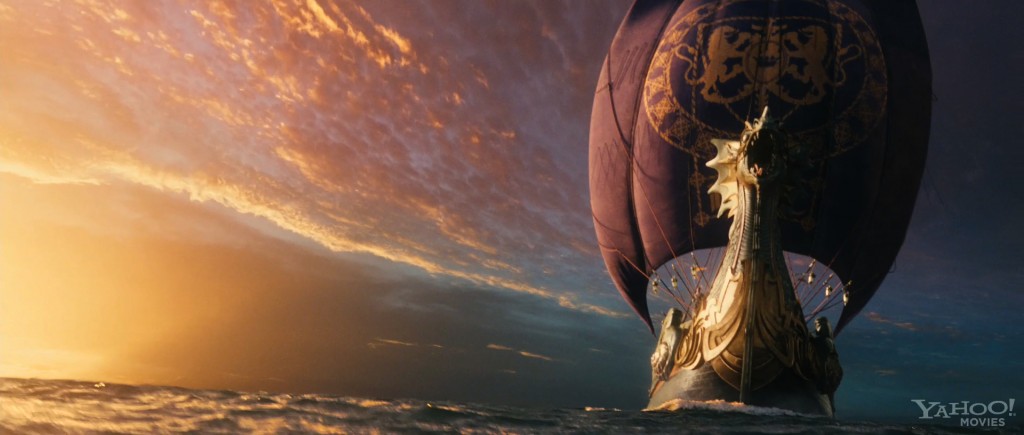 Well, that shows how much I know. Little of the marketing has emphasized the charactersâ personal journeys. Perhaps I may have actually been a bit naĂŻve. Even I donât really want to see only angst and temptations in a trailer. Mind you, if itâs in the book â as Edmundâs, Caspianâs, Eustaceâs and Lucyâs temptations were â I do want it in the film (and fortunately it seems these elements are in the film). But in the film trailers, Iâd rather see dragons, a sea serpent, the Dark Island, Aslanâs Country, and of course Aslan himself. Watch that trailer above, if you havenât already, and youâll see that after one mild trailer, one medium, they finally have a hot one.
Well, that shows how much I know. Little of the marketing has emphasized the charactersâ personal journeys. Perhaps I may have actually been a bit naĂŻve. Even I donât really want to see only angst and temptations in a trailer. Mind you, if itâs in the book â as Edmundâs, Caspianâs, Eustaceâs and Lucyâs temptations were â I do want it in the film (and fortunately it seems these elements are in the film). But in the film trailers, Iâd rather see dragons, a sea serpent, the Dark Island, Aslanâs Country, and of course Aslan himself. Watch that trailer above, if you havenât already, and youâll see that after one mild trailer, one medium, they finally have a hot one.
6. Cut non-canon mush.
No need exists for Lucy â our only female lead this time â to start Learning About Boys or any of this nonsense. [âŠ] Caspian is attracted to Ramanduâs daughter on the last island the ship reaches, and thatâs all. In Lewisâs Voyage, this is given a clear acknowledgment, and few will complain if that is made more clear in the film. So if we absolutely must have a Climactic Smooch, an epilogue scene could show them kissing.
7. Forget âStar Girl.â
A very early Dawn Treader script included the way wacky idea of having Ramanduâs daughter, a blue star-like humanoid, present earlier in the film than in the real story, guiding the Dawn Treader ship on its voyage until they wind up at the island.
These paragraphs were mostly based on that particularly dreadful Leaked Script from several years ago, source of much laugh-and-cringe merriment and reenactments among NarniaWeb members such as myself whoâve held onto its pieces. Ramanduâs daughter, comically named âSTAR GIRLâ in the script, constantly floats down into King Caspianâs dreams, being all mystical and sultry, and at one point, even climbing the shipâs rigging (presumably in a skirt).
Apparently such horrors will not be in the new film â such as Caspian and Ramanduâs daughter meeting before they should, or âSTAR GIRLâ stealing Aslanâs thunder by guiding the ship.
What about Lucy crushing on Caspian? She crushed on Caspian in the Leaked Script. Weâve heard nothing about similar things being showed in the new film. However, a certain Susan-and-Caspian Smooch-a-Rama, foreign to the book and utterly unbelonging even in the film, was tacked onto the end of Prince Caspian, prompting Gollum-esque screams from yours truly. So I suppose it does stand to reason that part of Lucyâs in-book temptations toward vanity could include seeking Caspianâs attention. Voyage film: please, donât do that. No, really, donât.
8. Toward Aslanâs Country âŠ
Make it incredible. Make it wonderful. Spend only $2 million on the rest of the filmâs effects and save $38 million for Aslanâs Country â a vision of Heaven, a spellbinding sight of luscious green mountains, valleys and waterfalls, all behind a translucent layer of sky and solid wave of water constantly rising beyond the end of the world.
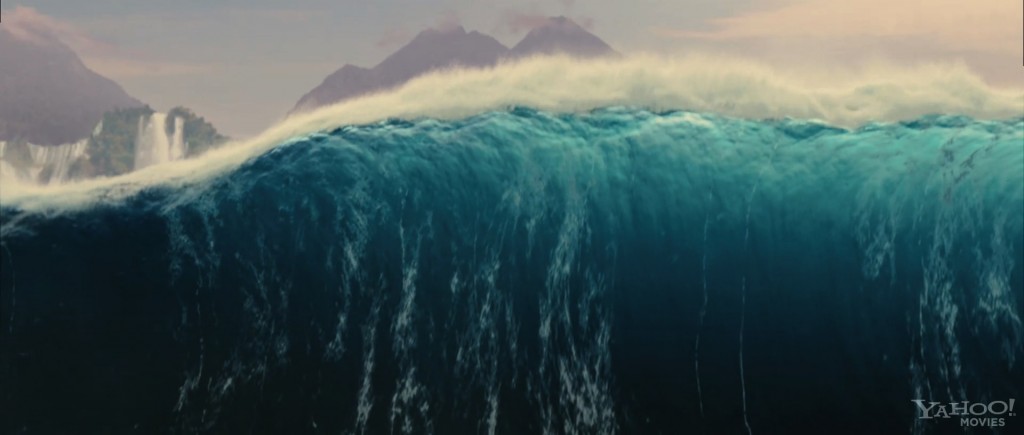 This is Aslanâs Country. They were courageous enough to give away the ending in the trailer. But frankly, speaking as a fan of the Dawn Treader book â whose longings for the New Heavens and New Earth find glorious echoes at the storyâs end â we needed to see that.
This is Aslanâs Country. They were courageous enough to give away the ending in the trailer. But frankly, speaking as a fan of the Dawn Treader book â whose longings for the New Heavens and New Earth find glorious echoes at the storyâs end â we needed to see that.
Now I canât wait to see more. Focusing the film on this, not a giant battle or quest-for-sevens-swords, would almost make the other changes worth it. And what would likely make them all the way worth it would be if they indeed kept Aslanâs words to Edmund and Lucy, which give perhaps the Chronicles of Narniaâs most explicit connection between the Lion and Jesus Christ.
The great Lion tells Edmund and Lucy they will not be returning to Narnia, yet he tells the children he is present in their real world as well. â[T]here I have another name. You must learn to know me by that name. This was the very reason you why you were brought to Narnia, that by knowing me here for a little, you may know me better there.â
A continual rumor Iâve heard: Aslan will not change from the form of a Lamb to the Lion, as He did in the book. That is disappointing. Yet the paragraph from a March 2 Christianity Today article, which I mentioned in part 2, has still not been contradicted: Aslanâs revelation is there in âits unadulterated entirety,â according to Kathy Keller, who saw an early version of the film.
And that is an encouraging thought.
Next week: I may or may not switch from Dawn Treader hype to Harry Potter and the Deathly Hallows hype, which will certainly also re-raise the always-interesting debate over magic and wizardry in fiction. Or perhaps Iâll instead posit discussion over a particularly interesting moment in the comedy film Galaxy Quest, centered around the nature of stories, pretending and lying.
Yet for now: will you be seeing The Voyage of the Dawn Treader? If so, will you choose the 3D showing? Plan to see the film opening weekend, or wait? And what are your thoughts so far?


































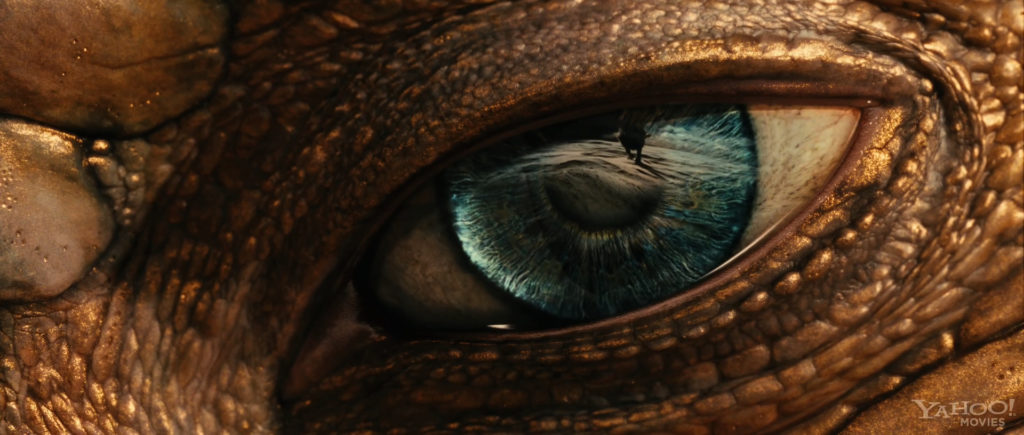

 Kirk Outerbridge: I found out in the middle of a hurricane! Hurricane Igor to be exact. My day job as a facilities manager at our islandâs waste to energy plant requires that I stay on site during a storm. We were at the height of Igorâs passing when I decided to check my email on my blackberry. I saw an email from my fellow Marcher Lord Press author Kerry Nietz congratulating me on winning the Carol! I was a double finalist in both speculative and debut novel so I didnât know which I had won. I was stunned for a few minutes and then I started typing away at my blackberry furiously to find out which category. I got onto the ACFW website and saw I had won the speculative category. I was overjoyed! Especially considering I was weathering a hurricane at the time. đ It was a great moment indeed.
Kirk Outerbridge: I found out in the middle of a hurricane! Hurricane Igor to be exact. My day job as a facilities manager at our islandâs waste to energy plant requires that I stay on site during a storm. We were at the height of Igorâs passing when I decided to check my email on my blackberry. I saw an email from my fellow Marcher Lord Press author Kerry Nietz congratulating me on winning the Carol! I was a double finalist in both speculative and debut novel so I didnât know which I had won. I was stunned for a few minutes and then I started typing away at my blackberry furiously to find out which category. I got onto the ACFW website and saw I had won the speculative category. I was overjoyed! Especially considering I was weathering a hurricane at the time. đ It was a great moment indeed.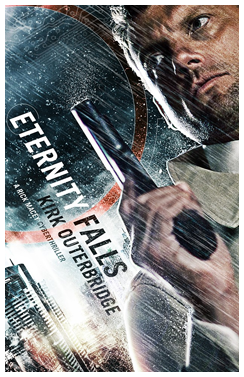 My inspiration I think stemmed from many years of playing role playing games with my aforementioned best friend. I was usually the GM and so had to come up with a plot, interesting non player characters, witty dialog. In short, all the tools you need to write a novel. I think thatâs where my storytelling ability came from, but learning the craft of writing is something different entirely. That came through lots and lots of practice, critiquing and thick skin combined with a commitment to always do better. My venture into writing as a craft started in my early twenties in college so I guess Iâve been at this for 15 years now. Sounds scary when you add it all up but I guess thatâs how long it took me to get to a level people would consider worthy of publishing.
My inspiration I think stemmed from many years of playing role playing games with my aforementioned best friend. I was usually the GM and so had to come up with a plot, interesting non player characters, witty dialog. In short, all the tools you need to write a novel. I think thatâs where my storytelling ability came from, but learning the craft of writing is something different entirely. That came through lots and lots of practice, critiquing and thick skin combined with a commitment to always do better. My venture into writing as a craft started in my early twenties in college so I guess Iâve been at this for 15 years now. Sounds scary when you add it all up but I guess thatâs how long it took me to get to a level people would consider worthy of publishing.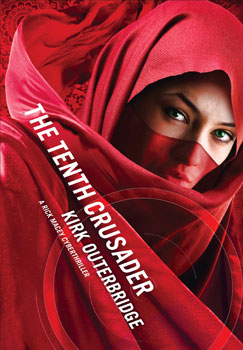 ESB: Last month brought your sequel to cyber-shelves: The Tenth Crusader. Iâm curious how this story is different from your first novel, both in themes, setting and your own writing.
ESB: Last month brought your sequel to cyber-shelves: The Tenth Crusader. Iâm curious how this story is different from your first novel, both in themes, setting and your own writing.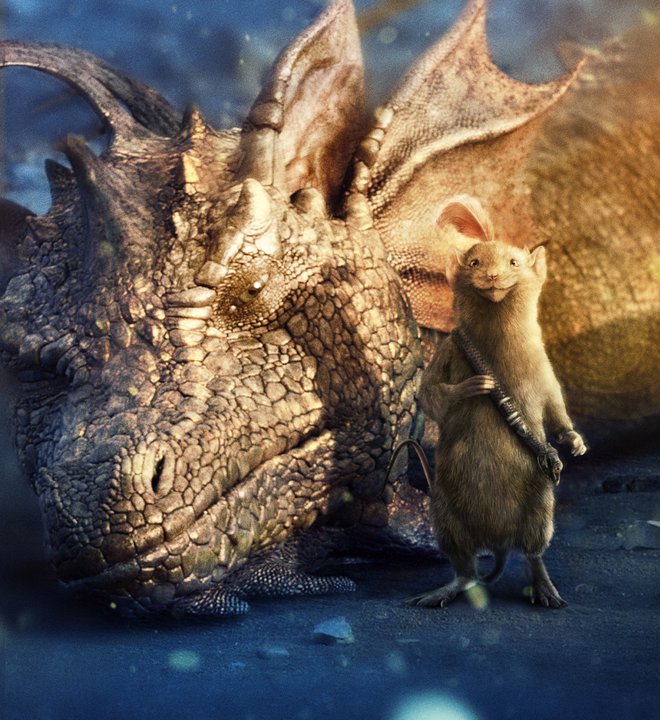

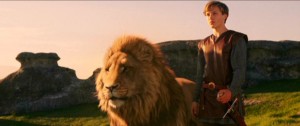
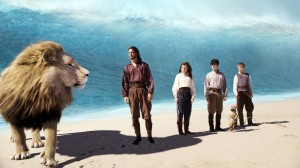
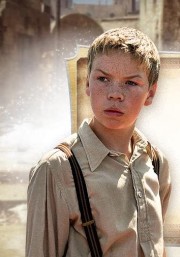 Those who have seen Will Poulter, who plays Eustace, or caught sight of his performance in film trailers or clips will know that he has captured Eustace perfectly.
Those who have seen Will Poulter, who plays Eustace, or caught sight of his performance in film trailers or clips will know that he has captured Eustace perfectly.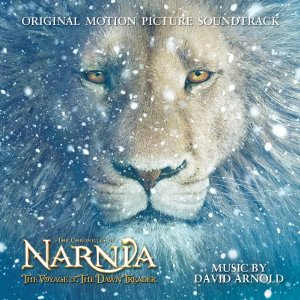

 Itâs election day here in the U.S.A, which has a lot of peopleâs focus honing in on politics and anticipating the end of the ever-so-loathed election-year ads on television.
Itâs election day here in the U.S.A, which has a lot of peopleâs focus honing in on politics and anticipating the end of the ever-so-loathed election-year ads on television.

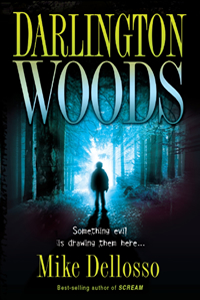 My philosophy on Christian horror
My philosophy on Christian horror


